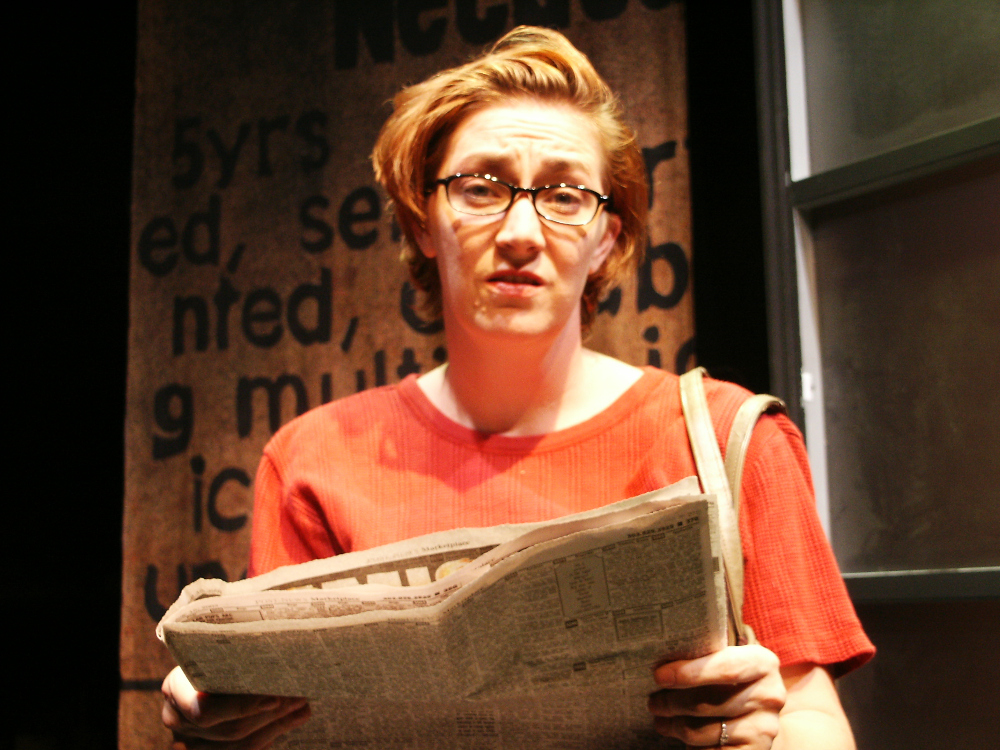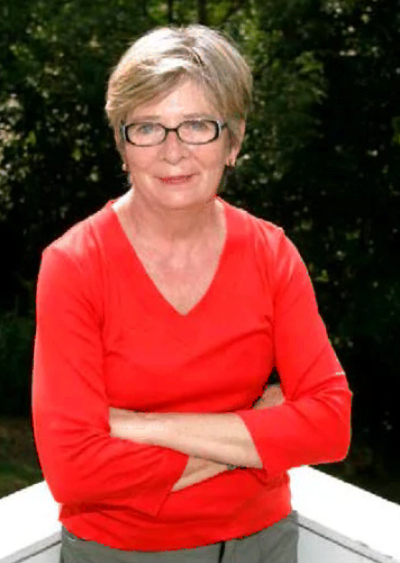From the archives: Barbara Ehrenreich on the plight of the working poor

In 2003, the indefatigable champion for worker rights was fighting for the minimum wage to be raised – to $7
By John Moore
Originally published in The Denver Post
Sept. 14, 2003
Note: A look back at my interview with author, activist and self-described myth-buster Barbara Ehrenreich, who died Thursday (Sept. 1) at age 81. In 2003, an adaptation of her book “Nickel and Dimed” was staged at Denver’s Curious Theatre Company.
Barbara Ehrenreich took on the duties of a maid, waitress, nursing-home attendant and Wal-Mart clerk during her year toiling undercover in minimum-wage jobs, but she remained a journalist at heart. And all journalists appreciate interview subjects who don’t censor their gut feelings.

“I was very dubious,” Ehrenreich said of hearing that Seattle’s Intiman Theatre wanted to make a play out of her best-selling book “Nickel and Dimed: On (Not) Getting By in America.”
Ehrenreich is a political essayist and social critic who in 12 books and countless magazine pieces had turned a harsh light on social injustice. But adapting her ruminations on how to survive in low-wage America? Compelling reading, certainly. But compelling theater?
“It seemed very unlikely to me it was going to work,” she said. “There’s not a drama here. There’s not a story. But when (Intiman director) Bart Sher said, ‘We’ll find a playwright,’ I said, ‘Well, you can try it if you want.”‘
Ehrenreich had no interest in tackling the assignment herself, because one of the few low-paying jobs she has never undertaken is playwriting.
“I have to admit I know so little about theater,” she said from her home in Charlottesville, Va. “I’m not really a big theatergoer at all. The play I’ve seen most in my life is ‘Nickel and Dimed.’ ”
Now thousands are joining her in seeing a play that has become one of the hottest properties in the regional theater this season.
Denver’s Curious Theatre Company won the rights to become only the fifth company to stage it, following heavyweights such as the Mark Taper Forum in Los Angeles and the Guthrie in Minneapolis (starring Denver Center alumna Robynn Rodriguez).
Ehrenreich has since accepted the notion that her undercover journey “into the underbelly of American capitalism” translates powerfully to the stage. “It’s quite a thrill to see it go into an entirely different medium,” she said.
The woman responsible for her reversal of opinion is legendary director Joan Holden, who was principal playwright for the San Francisco Mime Troupe from 1970-2000 and is believed to be the most produced female playwright in American theater history. Holden’s adaptation takes Ehrenreich’s relentless fact-based reporting and turns it into a deeply human story.
Ehrenreich is the daughter of a Montana copper miner who ingrained in her a concern for economic equality. “My family was a blue-collar situation, and as my father became more upwardly mobile, we got a guided tour of the class system in America,” she said. “We seemed to be moving up, but I was always aware of where we had come from.”
But she found it “very wrong” that a single working woman in good health might barely be able to support herself. Still, spending a year working minimum-wage jobs in Florida, Maine and Minnesota to demonstrate their plight was not her idea.
“I was kind of trapped into this assignment by my editor at Harper’s,” Ehrenreich said. “I didn’t look for it. I was pitching a story on this theme, but the conversation wandered off to welfare reform. And in expressing my frustration that people seem to assume it’s easy for a woman to support herself and kids as an entry-level worker, I said, ‘You really should find someone to go out and do the old-fashioned kind of journalism and try it for themselves.’ I certainly didn’t mean me.”
But Ehrenreich it was.
“I was working two jobs and seven days a week, and I thought, ‘I’m really doing it. I’m making ends meet. This is great,”‘ she said. “But then I had to ask, ‘Well, how does somebody keep this up forever?’ There is this repetitive stress injury of the spirit that sets in when your entire life is work and getting ready to work.”
In the play, a fictional version of Ehrenreich challenges the audience’s understanding of the day-to-day realities of the working poor.
“For those of us born in the middle class, it’s easy to ignore that lucky accident,” “Barbara” says in the play. “We credit all our happiness and achievements to our own superior talents. We forget that it took some ancestor’s amazing gifts, or grit, or rapacity to lift our family beyond the reach of desperation. And we forget how we can eat fast, live in shiny clean houses, and buy anything we want, cheap: on the backs of other people, who drew lower numbers in the birth lottery. Who are the real major donors? The working poor. What do we owe them?”
Ehrenreich hopes her book and play create change, starting with simply making the affluent middle class more aware of what she calls the human reality behind the services and products they consume. “Just think about the people they really depend on to serve them and clean up after them,” she said.
The next goal is involvement. “The lack of interest by the federal government means things must happen locally on issues such as affordable housing and organizing living-wage and union-organizing campaigns,” she said.
Toward that goal, Curious will host panel discussions on public policy related to the working poor after every Sunday matinee performance starting Sept. 21.
Nationally, Enrenreich said the $5.15 minimum wage must be raised to at least $7.
“I would like to see it brought back up to an actual living wage level, which goes back to 1968. But for a person to support him or herself and two children at a very basic level, it would need to be $13-$14 an hour.”
As for her new and unlikely presence in the American theater, Ehrenreich calls it more than likely short-lived. “I’m learning that there’s a kind of a connection with live actors that does not go on with a movie,” she said. “But I don’t know. I’m probably going to stick with the movies.”
Leave a Reply